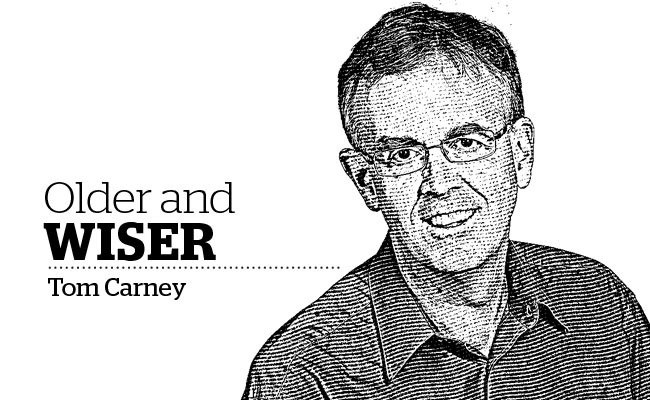If I want to know what is on my readers' minds I just have to look in my inbox.
On the subject of older seniors renewing their driver's licence, I regularly hear from two groups: Those who feel they have been treated unfairly because of their age; and those who breathe a huge sigh of relief when their partner or elderly parent has had their licence revoked.
Here's an excerpt from a recent email. "My husband has gone through the (driver's licence) review this year and there were surprises. I think there has to be more awareness of the actual process so that other 80 year olds know what to expect."
Let's see if we can help with that. According to ICBC, there were 93,000 drivers 80 years of age or older in B.C. in 2013. RoadSafetyBC, the provincial body responsible for road safety in B.C., takes the position that with the population aging, screening tools are needed by health professionals and licensing personnel that can accurately identify medically at-risk drivers.
So, in B.C. all driver's licence holders over the age of 80 must have a Driver's Medical Examination Report (DMER) completed every two years if they wish to renew their driver's licence. Senior drivers may also be required to undergo further medical or functional assessments such as a road test, a DriveABLE assessment or a SIMARD-MD test. DriveABLE is a functional tool using a touchscreen and SIMARD-MD (an acronym for Screen for the Identification of Cognitively Impaired Medically At-Risk Drivers, a Modification of the DemTect) is a screening tool used to identify cognitively impaired drivers.
Most of the seniors I hear from are fine with having a medical exam and they're not opposed to screening tests if those tests are accurate and fair.
The evidence suggests they're not.
It's not just those tests. Researchers at McMaster University have concluded that, "there is no single cognitive screening test that can solely determine with absolute certainty whether an older person is fit to drive."
In a web page designed for medical professionals, the B.C. Ministry of Justice poses the question: "Why does RoadSafetyBC require a DMER when a driver turns 80."
Their answer: drivers aged 80 and older are involved in more crashes per kilometre driven than almost any age group, and are also much more likely to die in those crashes. That's true.
But seniors don't have the highest crash rates, teenage drivers do. We don't say they can't drive.
I'm in favour of screening older drivers and clearly we need to adequately assess when there are potential problems that might place people at risk when they are driving. I think we are making two errors here. First we are using screening tests that are unproven, at best, to determine driver competency. And somehow, inexplicably, we've made the road test the last test to determine the competency of older drivers. Most older senior drivers are competent and many have never been in an accident. Let's get them out of the doctor's office, away from the computer screens and tests with alphabet soup names, and back on the road where they belong. If there's reason to think an older senior shouldn't be behind the wheel, schedule
them for a road test with a trained examiner. We'll have a result in less than an hour at considerably less cost than administering the DriveABLE and SIMARD-MD tests.
That would help the taxpayer, meet the requirement for fairness and help ensure the roads are safer for everyone.
Tom Carney is the former executive director of the Lionsview Seniors' Planning Society. Ideas for future columns are welcome. [email protected]



